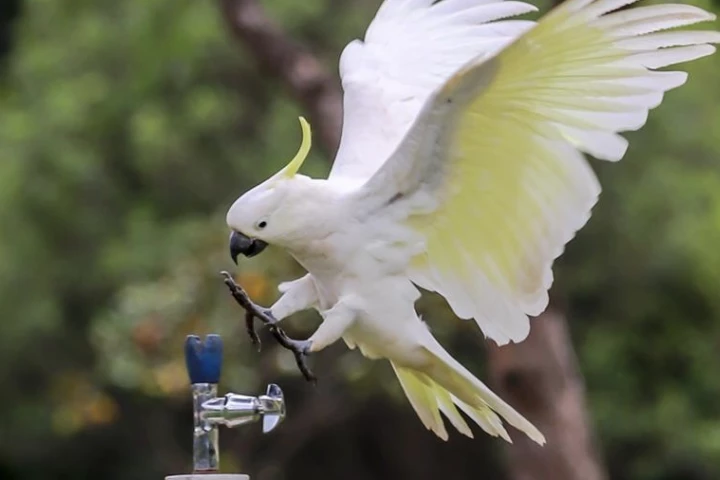Western Sydney University
-
In an impressive feat of urban adaptation, sulphur-crested cockatoos have worked out how to use their feet and their large bodies to twist the taps of drinking fountains. And much like another of their moves, they're learning to do this en masse.
-
Australian researchers are putting together a supercomputer designed to emulate the world's most efficient learning machine – a neuromorphic monster capable of the same estimated 228 trillion synaptic operations per second that human brains handle.
-
With complex ecological modeling, scientists have found that plants may be soaking up 20% more CO2 than earlier predicted. It's no "get-out-of-jail-free card," but it highlights the crucial role nature needs to play as we try to stem global warming.
-
Developmental language disorder is a permanent condition that shows up in childhood, causing difficulties with speaking and comprehension. A new study has found that children with the disorder may benefit from listening to regular musical rhythms.
-
A first-of-its-kind study has found adults with neurodevelopmental disabilities may experience improvements to symptoms of anxiety and depression after using specially designed virtual reality sensory rooms.
-
Astronomers have discovered a strange intergalactic ring that may be the first of its kind found. The large radio circle lurks between the Milky Way and a neighboring galaxy, and its discoverers suggest it may be the remains of an unusual supernova.
-
It goes without saying that surgeons require a very delicate, precise touch. A new set of surgical training gloves were designed with that fact in mind, as they monitor their wearer's hand movements, and provide feedback on their technique.
-
With the mystery of fast radio bursts looking increasingly solved, astronomers need a new cosmic conundrum to ponder. And right on cue, a brand new noodle-scratcher has emerged from the depths of space – meet “odd radio circles,” or ORCs.
-
Our universe seems to contain a suspiciously perfect amount of "dark energy" to sustain life. But new research suggests that life is still possible even with far more dark energy than we have, and the results have some big implications for the multiverse theory.
-
Scientists at the MARCS Institute at Western Sydney University have tested a non-invasive artificial larynx and found it capable of generating a high-quality voice.
-
Researchers from Western Sydney University have uncovered the novel strategies Australian eucalypt trees use to survive extreme heatwaves. One remarkable process involves the tree evaporating large volumes of water through its leaves in a process is similar to sweating.









